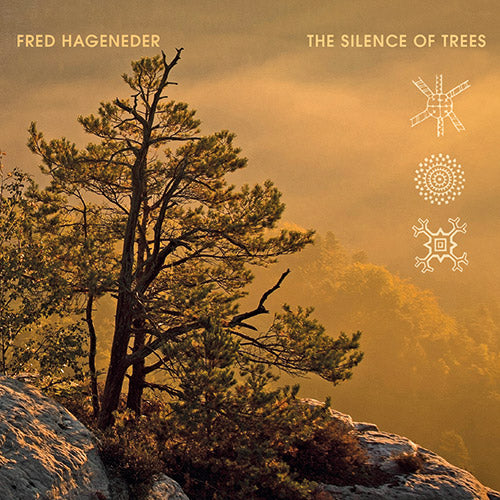1
/
of
1
The Order of Bards Ovates & Druids Online Store
The Silence of Trees (CD) - Fred Hageneder
The Silence of Trees (CD) - Fred Hageneder
Regular price
£12.00 GBP
Regular price
Sale price
£12.00 GBP
Unit price
/
per
Couldn't load pickup availability
The Silence of Trees
Harper Fred Hageneder sees trees as important transformer stations in the web of life. 'Trees are interested in ions and aeons,' says he, 'that is, in the electron exchange in their leaves and in whatever it is their winter buds receive from outer space. And photosynthesis in green leaves is the fundamental process that allows all of us – plants and animals – to be here. All these amazing miracles happen in silence, in complete, perfect silence… With this album I try, with the help of some excellent musicians from all over the world, to honour this silence, this place of origin.'
Ea, the first track, is a solo piece for steel-strung harp with its multitude of overtones. The name comes from ancient Sumer, where four thousand years ago the philosophy of the World Tree was first captured in writing on cuneiform clay tablets. Ea was the name of the World Tree as well as the deity of wisdom who resides therein.
Olea is a warm and gentle appreciation of the Olive tree who with its fruits has been keeping humans nourished and healthy since the beginnings of civilization. The gifts of the Olive tree are health, healing, and peace.
Dana invokes the atmosphere of when the first ever Celts came by ship to the misty shores of Ireland. On the sacred hills of Dana, these early settlers were invited to meet the land guardians in the ancient yew grove, they formed a tryst to respect each other, and from that moment on, Celtic Ireland was born!
Red Cedar honours the 'Long Life Maker' of the First Nations people along the Pacific Northwest coast. This tree has been vital to their way of life, art and culture.
Asvattha is the Sanscrit name of the World Tree, the tree of Brahma which represents the whole universe in Indian tradition.
Dodona refers to the oldest spiritual site in ancient Greece, a tree oracle that functioned for about 2,000 years. In classical times, its fame was second only to the Oracle of Delphi.
Jinja whispers of the silence of the ancient sugi and yew trees in the Shinto shrines of Japan – performed by harp and shakuhachi, the Japanese bamboo flute.
Harper Fred Hageneder sees trees as important transformer stations in the web of life. 'Trees are interested in ions and aeons,' says he, 'that is, in the electron exchange in their leaves and in whatever it is their winter buds receive from outer space. And photosynthesis in green leaves is the fundamental process that allows all of us – plants and animals – to be here. All these amazing miracles happen in silence, in complete, perfect silence… With this album I try, with the help of some excellent musicians from all over the world, to honour this silence, this place of origin.'
Ea, the first track, is a solo piece for steel-strung harp with its multitude of overtones. The name comes from ancient Sumer, where four thousand years ago the philosophy of the World Tree was first captured in writing on cuneiform clay tablets. Ea was the name of the World Tree as well as the deity of wisdom who resides therein.
Olea is a warm and gentle appreciation of the Olive tree who with its fruits has been keeping humans nourished and healthy since the beginnings of civilization. The gifts of the Olive tree are health, healing, and peace.
Dana invokes the atmosphere of when the first ever Celts came by ship to the misty shores of Ireland. On the sacred hills of Dana, these early settlers were invited to meet the land guardians in the ancient yew grove, they formed a tryst to respect each other, and from that moment on, Celtic Ireland was born!
Red Cedar honours the 'Long Life Maker' of the First Nations people along the Pacific Northwest coast. This tree has been vital to their way of life, art and culture.
Asvattha is the Sanscrit name of the World Tree, the tree of Brahma which represents the whole universe in Indian tradition.
Dodona refers to the oldest spiritual site in ancient Greece, a tree oracle that functioned for about 2,000 years. In classical times, its fame was second only to the Oracle of Delphi.
Jinja whispers of the silence of the ancient sugi and yew trees in the Shinto shrines of Japan – performed by harp and shakuhachi, the Japanese bamboo flute.
Share


